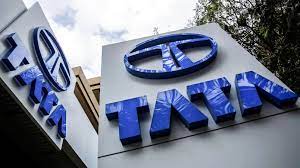The company told the exchanges that the marginal price hike will be the weighted average of around 0.6 per cent, depending on the variant and model.
Read More:- Slight Decline in India’s Covid Cases with 10,753 New Infections; 27 Deaths Reported
New Delhi: Indian automobile manufacturer Tata Motors today, 14 April 2023, announced that it is raising the prices of its passenger vehicles (PVs) from 1 May 2023.
The company told the exchanges that the marginal price hike will be the weighted average of around 0.6 per cent, depending on the variant and model.
The price hike comes as Tata Motors has absorbed a significant portion of the increased costs on account of regulatory changes and rise in overall input costs. As per the company, it has been “compelled to pass on some proportion” of the increased costs through this hike.
Read More:- Vande Metro In India: What Sets It Apart From Vande Bharat Trains | 5 Key Features
This is the second time in 2023 that Tata Motors has increased prices, with the earlier increases being 1.2 per cent in January, also due to rising input costs and regulatory changes.
Apart from the rising input and regulatory changes, the implementation of Bharat Stage VI norms at the start of this month has led to an increase in the cost of vehicles across segments in India. As per government mandate, automakers must equip their vehicles with a special device to monitor emissions, resulting in additional expenses. This has forced car manufacturers such as Tata Motors to raise the prices of their passenger vehicles due to rising input costs and regulatory changes.
Read More:- Ajmer- Delhi Vande Bharat vs Shatabdi Express: A look at fares, stoppages, travel time
In the fiscal ended 31 March 2023, India recorded its highest-ever sales of passenger cars, even with multiple price hikes throughout the year.
The increase in demand for sports utility vehicles (SUVs) was the main driving force behind the surge in sales. Tata Motors’ Punch and Nexon SUVs were among the top-selling cars in India during 2022, contributing significantly to the automaker’s success.
Read More:- Vedanta board approves raising Rs 2,100 crore through NCDs
The auto sales in India is projected to slow down to a low single-digit percentage in the current fiscal year, as per the Federation of Automobile Dealers Associations (FADA). Inflation, recent price hikes by automakers, regulatory changes et cetera could contribute to the slowdown in car sales. This prediction comes in contrast to the high sales figures that were achieved in the previous fiscal year, which were buoyed by strong demand for larger SUVs like Tata Motors’ Nexon and Punch models.





































